Our food philosophy

Tyrant Farms' articles are created by real people with real experience. Our articles are free and supported by readers like you, which is why there are ads on our site. Please consider buying (or gifting) our books about raising ducks and raising geese. Also, when you buy through links on our site, we may earn an affiliate commission. Learn more
Throughout human history and prehistory, few people would have needed a “food philosophy” to help guide their eating habits and choices. Most of our ancestors simply ate whatever was edible in their particular environment when it was available, storing any excess for later use during the lean months of the year.
Ecological realities were painfully evident and personal: if your tribe took too many resources from a landscape, you’d soon suffer by way of less food in the near future, plus whatever other negative ripple effects your actions caused within the food web. If a natural disaster hit, your “pantry” would immediately be bare, and there wasn’t an app for grocery delivery or neighboring states to deliver aid.
Over generations within this construct, by necessity, deep knowledge developed about every living organism within an ecosystem and the relationships threading between them. Likewise, primary food sources—from mammoths to maize—were considered sacred, often elevated to the status of gods, gifts from gods, and/or familial relationships (sister, brother, etc). A great deal of time and energy was expended in the pursuit and processing of these food resources, so being sedentary was an impossibility.
From our modern perspective, life in these environments would be almost incomprehensibly difficult. For starters, you’d be lucky to survive birth—and so would your mother. You’d be lucky to live to age 2 without succumbing to disease, infection, starvation, or injury. You’d be even luckier if you made it to reproductive age and beyond. And for those incredibly lucky few who made it to the ripe old age of 50, they would have known full well that they were wholly dependent on their clan/group for their survival and wellbeing. That’s because they were as likely to survive on their own in the world as a worker bee without its colony.
Likewise, every person in the group made tools, hunted, foraged, processed food, cooked, ate, slept, shared stories, and lived together. This was how all humans lived, and it would have been exceptionally difficult to be lonely or obese in this biosocial context.
To be clear, we’re not pining away to live in these “good ol’ days” of yore. Quite the contrary. Given the choice between living in their world or ours, we’d gladly choose ours. However, whether we like it or not, we’re still the same species and subject to many of the same biological realities as our ancestors. Thus, there are some very important lessons from the past that might help guide our behaviors today, including our relationship to food and to each other.
With this information in mind, we’ll share our food philosophy. Caveats: We don’t claim our personal food philosophy to be a universal truth or something that everyone should adopt. Our philosophy is bespoke to us, but parts of it may be helpful for you in developing your own food philosophy. We also recognize that we’re incredibly lucky to be able to afford healthy food, have some land to grow food, have safe places to forage, etc. Many people do not have those privileges and luxuries.
Our 14-point food philosophy
1. Eat to be healthy, not to be fed.
Japan shines as perhaps the healthiest developed country, with exceptionally high morbidity (healthspan) and mortality (lifespan) metrics. Their culture of health starts with teaching young children the importance and benefits of healthy food in school, where chef-made meals are the norm.
A Japanese-American sushi chef we were friends with once told us something that deeply resonated: “In my country, we eat to be healthy. We don’t eat to be fed.”
This statement gets at “first principles,” aka foundational concepts that shape and inform downstream norms and behaviors. I bet if you asked ten Americans the question, “why are you eating?” at least nine of them would say “because I’m hungry.”
However, if you’ve paid attention to America’s ever-worsening health epidemic, you know that most Americans are not actually suffering from a caloric deficit. More likely, they’re eating because they’re anxious, bored, a clock says it’s time to eat, they need another dopamine junk food hit, and/or they’re nutrient-deprived. In other words, they’re eating to be fed.
We don’t eat to be fed. We eat food with the primary aim of being well, because we recognize that consuming quality food is a foundational part of being a healthy, functioning biological organism. Aspiring to be well as a first principle shapes and informs all our downstream decisions.
2. Eat socially, not in isolation.
Put down your stupid phone and eat with other human beings, face to face. Then have meaningful conversations with people you care about while you eat.
For our family, that means we eat breakfast and dinner together at our kitchen table every day. Dad and mom both cook, and our young son helps as best he can. Cooking is an essential life skill that’s critically important if you want to be healthy. Thus, having male reproductive organs does not exempt me or my son from cultivating that skill.
At mealtime, nobody starts eating until we’re all seated, and nobody leaves the table until the last person is finished. There’s more depth of meaning in those simple acts than can be concisely conveyed in this article, but you can chew on them as long as you’d like. (Pun somewhat intended.)
Also, you’re less likely to binge eat or make poor food choices if you’re eating with other people who truly care about you, and vice versa. And you’re going to feel better and be better in other areas of your life if you have strong social connections. Meals are a convenient time to consistently invest in those relationships.
3. Condition the system you’re feeding.
Good health emerges from a constellation of factors, not a single star. If you eat well but never condition the system you’re feeding, the system won’t operate optimally.
Find forms of strenuous exercise you can do frequently, and make them routine. For us, that’s primarily weight training, hiking, swimming, and running.
Light and moderate exercise is great, too. Take the stairs instead of the elevator. Park further away from the door in the parking lot so you have to walk more steps. Also, garden and take care of your ducks!
Exercising also makes you acutely aware when you put the wrong fuel in the tank, which then makes you want to put the right fuel in the tank.
4. As much as possible, make your meals from scratch using whole ingredients. As much as possible, avoid restaurants.
Foods in historical human environments were not manufactured by teams of chemists to be microbially sterile, hyper-palatable, and addictive. Unfortunately, in our modern world, these foods are the norm, not the exception.
We get it… Everyone is crazy busy, and they don’t have time to make from-scratch meals, so that function gets outsourced to the lowest bidder. And entities in our free market system ruthlessly fight for the position of lowest bidder while also trying to create repeat customers through any means necessary.
The good news is you can find a few simple, healthy staple meals to make from scratch that only take a few minutes of prep. (The internet abounds with inspiration and recipes, or AI can also steal up some good ideas for you – ha.) The other good news is that homemade meals are almost always going to cost less than meals made by other people. And the more repetitions you get making your own meals, the easier, faster, and more habitual the practice becomes, to the point that going out to eat becomes the less convenient and affordable option.
Unfortunately, the quality of food in most restaurants is abysmal, especially the fast restaurants: refined carbohydrates rather than whole grains; highly processed meats; excessive salt, refined sugar, unhealthy fats, and non-food additives – and it all comes wrapped in packaging coated with PFAS, aka forever chemicals.
We very rarely eat out, but when we do, it’s a special occasion at a restaurant that serves high quality food. Granted, that meal costs us 10x the price of the ingredients and 5x the time of a homemade meal once we factor in dressing up, driving, and waiting. However, by rarely eating out, we save money that we can then invest into our garden or higher quality ingredients for home-cooked meals.
5. Enjoy what you eat.
Unless you’re seeking enlightenment through self-mortification, you should: a) eat, and b) enjoy what you eat.
Quality food is like a good book—regular consumption provides deep, lasting benefits. The standard American diet is like TikTok—regular consumption doesn’t just damage your health, it damages your brain and perceptions.
There’s a misconception that healthy food tastes bad. That might well be the case if your taste buds and preferences have been assaulted by common American foods your whole life. And while we recognize that taste is subjective, if a perfectly ripe peach, blackberry, or blueberry doesn’t delight you, it’s not the fruit’s fault. The same is true for a grass-fed, grass-finished steak or pan-seared cod with a sprinkle of fresh lemon juice. Actually, the same is true for everything we make and put on our plates, except for the occasional culinary experiment which goes wrong. (Sorry, dear.)
The point: you should delight in the flavors of your healthy foods, not suffer through them. Otherwise, you’ll stop eating them.
What if you’re aiming to wean yourself off of junk food? Just as you can’t go out and run a 10k your first time lacing up your shoes, research shows you might have to train your taste buds for a few months to orient them to actual food if you’re not accustomed to it. But you can do it with time and practice.
6. Drink water; avoid alcohol.
Sodas, sweet tea, and other sugary drinks… Stop drinking them today.
Ideally, drink filtered tap water. Don’t drink store-bought water out of plastic bottles—doing so is financially ludicrous, plus it’s often highly contaminated with microplastics and nanoplastics.
When we leave the house, we typically carry our stainless steel water canisters. We drink tap water filtered through a Berkey water filter system. (Every time you drink free water instead of buying a drink, put a dollar in a bucket and you’ll soon have enough money saved for a Berkey.) In the summer when we’re sweating gallons of water per day, we’ll sometimes also add an electrolyte powder to our water.
Need flavor to drink your water? Make herbal tea, which comes in 8 billion flavors and has a wide range of health benefits. Add a bit of stevia for sweetener if necessary.
Another thing we generally avoid is alcohol. I’ve cut it out completely; Susan still has the occasional beer or glass of wine. Generally, by refraining from alcohol consumption, you’ll sleep better, feel better, think better, and reduce the statistical likelihood of a wide range of chronic diseases.
7. Grow and/or forage as much of your food as possible.
This is a hard one for most people, but if at all possible, we encourage you to develop the deepest possible connection to as much of your food as possible. That’s one of the main reasons why our yard is an edible organic landscape, we regularly forage, and we raise ducks.
Isn’t that stuff hard work and knowledge-intensive? Yes. And that’s precisely the point. Plus, we get to compensate ourselves with hyper-local organic food.
8. Eat as many whole foods as you want at every meal.
It is very difficult to overeat whole foods. That’s because your body and GI microbes will soon receive the substances they need to initiate the physiological cascade that leads to the sense of satiation. For example, if your dinner is wild-caught salmon, whole fruit, a whole complex carb (sweet potato, brown rice, etc), sauteed green beans and mushrooms, and some nuts, it’s going to be very hard to overeat.
Conversely, if your dinner is a fast food burger, fries, soda, and a milkshake, it’s going to be very hard NOT to overeat. And you’ll ravage your microbiome in the process—even in a single meal. That’s a very high price to pay for cheap food.
So eat as much of the good stuff as you want at each meal. We also don’t bother counting calories because that metric is irrelevant within the parameters of our food philosophy.
Caveat: Not every person is the same. Some people have unique food allergies and sensitivities. Some people have autoimmune disorders, etc. If you find that you function much better on a diet where certain foods are eliminated, so be it.
9. Avoid most supplements, including vitamins.
If you listen to ads and health influencers, you should be taking about $4,000 in supplements per day to be healthy. A funny quote from Warren Buffett explains why: “Never ask your barber if you need a haircut.”
The reality is a good diet should provide 99.9% of everything most people in most situations need.
A few exceptions in our situation:
- we take 5 grams of creatine monohydrate daily for overall health (specifically brain and skeletal-muscular benefits);
- we use Orgain organic vegan protein powder to boost daily protein intake since we lift weights and want to stimulate muscle protein synthesis. Nope, we’re not vegans, Orgain is simply a high quality protein that we like and is easy on our GI systems.
We don’t take vitamins because there’s no need to (in our situation), and there’s even been some good research over the years showing that vitamin supplementation can have a negative impact on health. Sorry, Linus Pauling.
For the record, every time we’ve had bloodwork done, our vitamin and micronutrient profiles are perfect.
10. Consume low-sugar, living fermented foods (preferably homemade) several times per day.
One of the single best dietary interventions you can do for your health is to start regularly consuming quality fermented foods. Nope, not the sugar-infused yogurt with M&Ms on top, the unadulterated stuff. Unsweetened milk kefir and yogurt. (Add a bit of honey or stevia if you must have sweet.) Also, sauerkraut, kimchi, lacto-fermented pickles, etc.
As for veggie ferments, just 1-2 tablespoons of sauerkraut or kimchi a few times per day at a meal is all you need. Thankfully, homemade sauerkraut is ridiculously easy to make. (See our Beginner’s guide to fermentation with recipes.)
In fact, our five-year-old son’s favorite sauerkraut is made with just two ingredients: a head of organic red cabbage + salt measured to 3% of the weight of the cabbage. It’s ready to eat after 30 days in a fermentation crock or glass jar. (The anthocyanins in the purple cabbage give the final kraut delightful fruity notes and a vibrant red-purple color.)
Likewise, our son’s favorite drinks are our homemade fermented rose flower cordial and fermented native passionfruit cordial.
Here again, you don’t need to drink a giant glass of fermented cordial or kombucha. You can have a shot glass full as a digestif or aperitif with a meal.
Do note that if you buy fermented products from the store, they should be in the refrigerated section, otherwise they’re pasteurized and no longer contain the living microbes that provide the probiotic health benefits. Personally, we’d also avoid probiotic pills, even the ones that have had third-party verification to prove they actually contain what’s on the label. Just consume actual fermented foods and beverages instead.
Our recommendation: take a bit of time to learn how to make your own fermented foods and beverages rather than paying someone else 10x more to make it for you. You’ll probably be surprised by how easy they are to make once you have a bit of experience.
11. Avoid consuming pesticides as much as possible.
“Pesticide” is a broad term which includes insecticides (kills insects), fungicides (kills fungi), herbicides (kills plants), and other biocides. There are a lot of nuances and caveats here, but generally OMRI-listed pesticides approved for organic use are safer for people and the environment than synthetic pesticides.
Yes, when it rains, there’s likely glyphosate and atrazine in it. Yes, when our neighbors hire lawn companies to spray their monoculture grass lawns with pesticides, some of their poison drifts onto our property. But we still do the best we can to reduce our exposure to pesticides by buying organic foods, using organic growing methods in our gardens, foraging on unmanaged land, washing our produce before eating it, etc.
We’re especially careful with our son’s pesticide exposures since he’s a rapidly developing organism, which increases his exposure risks relative to a fully baked adult.
Side note: It’s maddening that there are PFAS (aka forever chemicals) contaminating a high percentage of American farmland and water supply. It’s also maddening that there are high levels of arsenic in rice and heavy metals in sweet potatoes (including organic) due to past soil contamination. There’s lead and arsenic in chocolate. There’s mercury in fish; the larger the fish, the larger the dose due to the way mercury bioaccumulates. Not to mention the ubiquity of plastic in, well, everything. Trying to navigate the environmental exposures maze with a kid can drive a parent insane.
As a species, we have and continue to create quite a mess out there. As a parent, all you can do is the best you can without driving yourself crazy.
12. Use a silver gun, not silver bullets.
It’s human nature to seek easy, magical solutions to complex, difficult problems. That’s why so many people buy magic longevity elixirs from 20 year old social media influencers and pills with no medical efficacy that promise to solve chronic health problems or restore youth and vigor.
No matter how healthy you are, three things are guaranteed to happen in life: 1) you’ll get old, 2) you’ll die, and 3) people will sell you magic cures along the way.
Mortality is scary and it sucks, but we all have to deal with it, ideally aided by open, honest conversations with people we love. You’re now one sentence older than you were before this sentence, and there’s no pill to reverse course! (You can still pay us $99.99 to remove that sentence from your mind using a sacred moonbeam—act fast before this offer expires! Yes, that’s sarcasm.)
The reality is that for most people in most situations, silver bullets don’t exist. However, silver guns may exist. That’s to say, the big patterns that you develop in life will make 99% of the difference in optimizing your healthspan and lifespan.
Do you have close relationships (friends and family)? Do you eat more like a prehistoric Homo sapiens than a modern American? Do you move, exercise, and lift heavy things regularly? Do you get enough quality sleep? Are you able to spend a lot of time outdoors? Does your life have meaning, purpose, and direction?
If yes, your life already has all the magic it needs, no pills or elixirs required. If not, cultivate the voids as best you can.
13. Consume food thoughtfully, but don’t let food consume your thoughts.
There are enough things in life to be stressed and anxious about without being chronically stressed and anxious about what you eat. So do your best not to develop disordered eating habits—or chronic stress.
As an example, our family isn’t in the habit of eating dessert after meals, other than some seasonally ripe fruit or a fruit popsicle. But about once per week or so, we’ll have dessert with our son. That might be something homemade we make together like a berry cobbler or honeysuckle ice cream. Or it might be a scoop of store-bought ice cream.
Regardless, zero guilt, shame, or stress is associated with consuming that dessert. It’s an occasional indulgence within an overall healthy pattern of being. Also, by not regularly eating dessert and sweets, it makes the occasions when we do eat them more special.
14. Start young and maintain your health (including healthy eating patterns) if possible. Or start now as the next best option.
Biological organisms are mindbogglingly complex. Thus, it’s easier to start young and maintain your health than it is to try to fix it after something has broken. So, if at all possible, establish good eating and overall health patterns early in life so they become habitual. That way, you’re not swimming upstream against entrenched bad habits or relying on willpower or outside intervention to eat and live well. It’s programmed; it’s who you are.
If you grew up with bad patterns or you’re at a bad place in life, do not feel overwhelmed or defeated. You can do it! Outside of youth, the second best time to begin cultivating a healthier version of yourself is now.
We hope our food philosophy helps you cultivate a better, healthier version of yourself!

Note: The featured image for this article shows our son foraging chanterelle mushrooms with us. He actually foraged his first chanterelle at 18 months old!
Recommended: If you enjoyed this article, you might also enjoy: Reflections on our place in the food system and beyond.

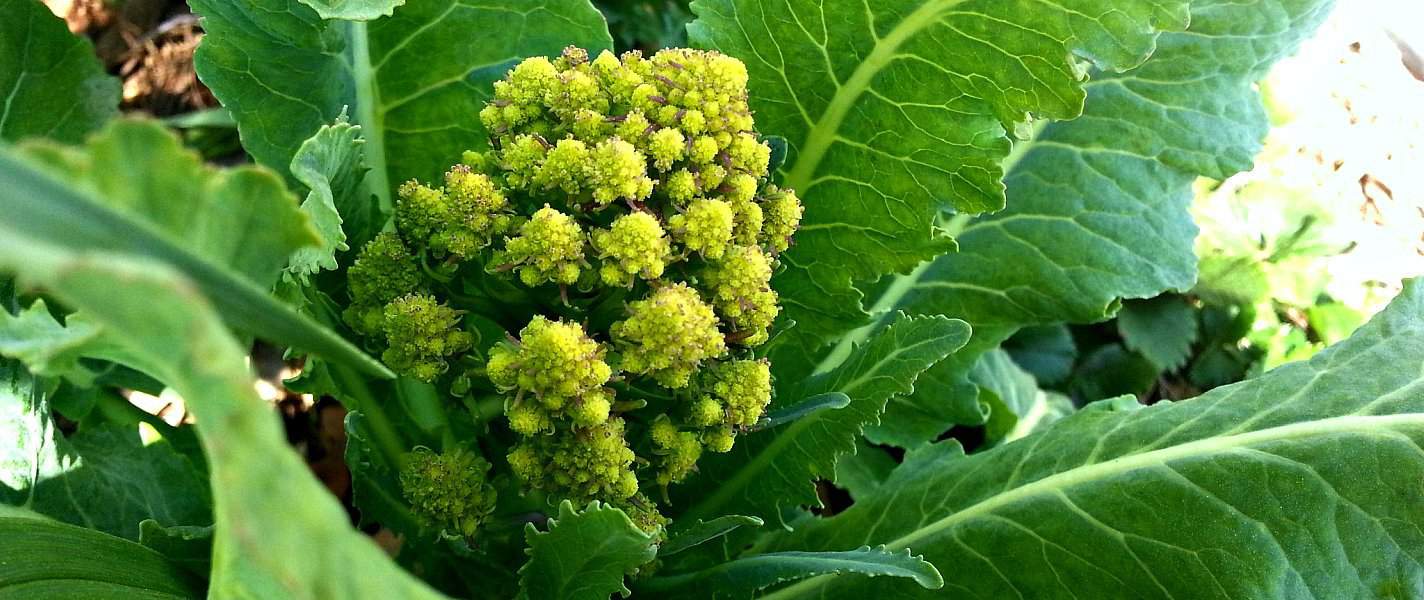
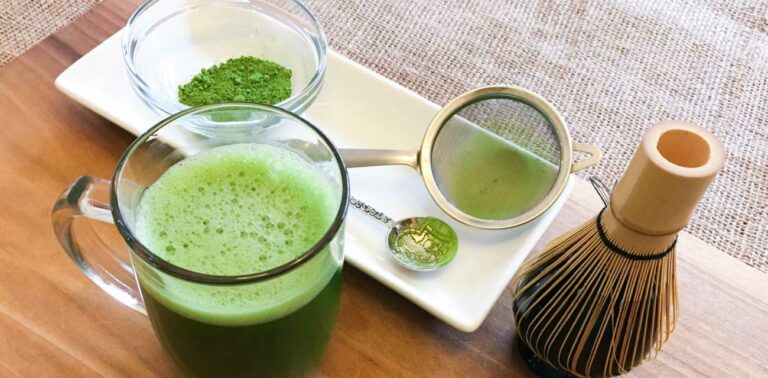
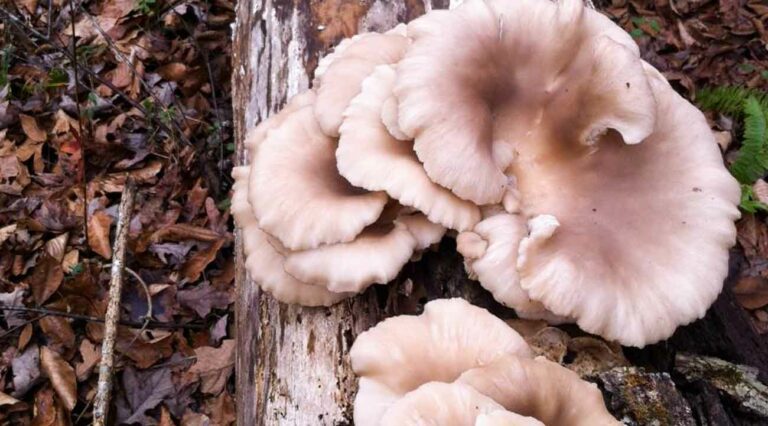
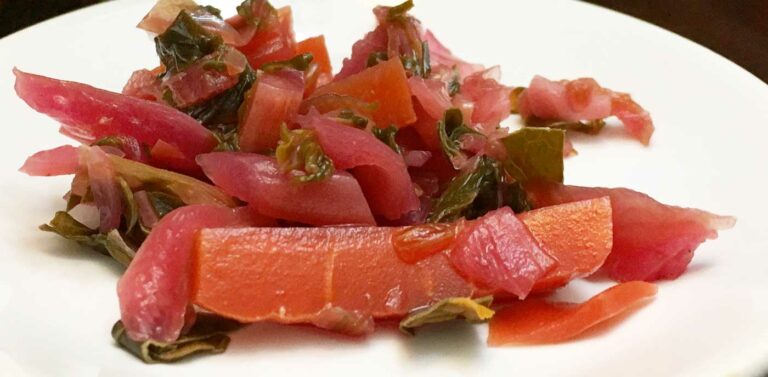
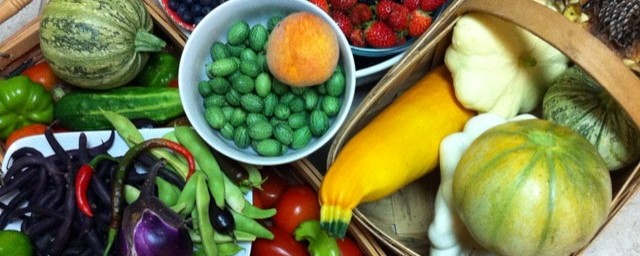

Such a beautiful article to read Aaron, and so near my own food philosophy.
I found you wonderful people when I became the suprise mother of 3 fine Pekin chaps who were callously abandoned on my doorstep 3 years ago.
You have been an invaluable source of information ever since and now so wonderful to discover that our duck philosophy matches our food philosophy!
The only major difference is that we practice our philosophies in different continents, as we are over the pond in the UK, but so good to know that folk like us still care about the things that really matter; decent ethically sourced food and beautiful ducks ♥.
Keep inspiring us 😍
Thanks for your kind words, Teresa! Thanks also for letting us know the original reason for our connection. It’s hard to believe that people would abandon ducks on another person’s doorstep. Wow. We’ve had people abandon cats on our property, but thankfully not ducks – yet. Hopefully, your Pekins are doing well. Cheers to you and yours from this side of the pond!
Great article and perfect timing! I was talking to someone who is struggling with weight loss just the other day. I need to share this article! I have a simple food philosophy; I eat to live, I don’t live to eat. I have always been thin, never had to be concerned about weight. Matter of fact, as a teen I actually wanted to gain weight! I felt I was too thin. I was nearly 6 ft straight. I may have been called strong bean a few times. Thin wasn’t the thing in the 90s, at least not at my small country high school. I certainly could have made better food choices in my youth, but I simply never cared much for food. Now that I’m aging, I’m starting to put on the pounds. According to my doctor, my BMI is “high”. I need to focus getting more exercise (in addition to gardening) and building muscle mass. I have begun to make more conscious decisions about what I eat and how I eat. This article really helped to put things into proper perspective. Thank you for such insightful and useful information!
Glad you found the information helpful, Sherese! Good for you on aiming to be a healthier version of yourself. “Eat to live, don’t live to eat” is a great philosophy to have.